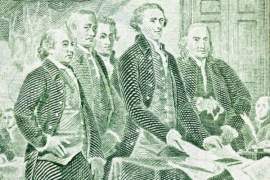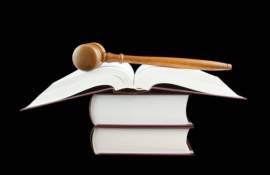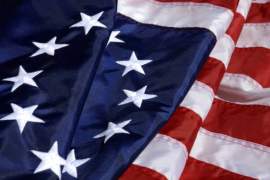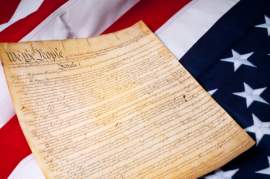
First Amendment

Popular In Constitution
Purpose Of Lifetime Appointment And Pros And Cons Enumerated Powers Bicameral Legislature Background Article 3 Of The Constitution We The People 1st Amendment Who Wrote The Constitution Judicial Review Equal Protection Clause 5th Amendment 10th Amendment Three Fifths Compromise
The First Amendment to the Constitution is part of the Bill of Rights, which is a series of Amendments that provides Congress with limitations. The Bill of Rights prohibit Congress from making any law that violates the establishment of religion, free press, speech, interfering with the rights of a peaceful assembly, or prohibiting any petition to address grievances. At first, the First Amendment was only extended to Congress. By the Twentieth Century, the First Amendment applied to each State, including all local governments.
When the Constitution of the United States was
first delivered, some representatives opposed its implementation because of its
lack of guarantees for civil liberties. In order to cover this request the 1st
Amendment was enacted with the Bill of Rights and adopted in 1791.The First Amendment
addressed such views regarding freedom of religion, wherein the Supreme Court
implemented neutral governmental actions regarding religion. The First Amendment
also addressed an individual’s right to freedom of speech.
The Supreme Court did not implement the necessity to exercise one's freedom of speech until the 20th Century. Actually after World War I, the Supreme Court was approached with several cases limiting the rights to the freedom of speech. The Espionage Act of 1917 sentenced a person to the maximum of 20 years for anyone found guilty of acts of insubordination, disloyalty, or refusal of duty in the military or naval forces. During the time when this Act was enforced, many people were sentenced for exercising their own free will. One example was of a filmmaker who was sentenced to 10 years in prison for this portrayal of the British soldiers during the American Revolution.
The Sedition Act implemented in 1918 further restricted individuals from expressing their own views. This Act stated that it was a criminal offense for anyone to exhibit disloyal, insulting, or abusive language against the Government.
The Supreme
Court shaped the 1st Amendment to allow a multitude of restrictions on speech.
Justice Edward Sanford suggested that states could apply punishment to words
that by their very nature involved danger to the public peace as well as state
security. Freedom of speech did not become an influence to the American Government
until 1940.
The 1st Amendment also applied freedom of speech
to war protests in the 1960s, with limitations. Depending on the form a protest
a person could be held liable for their actions. The Government prohibited the
act of individuals mutilating any draft card given by the military, feeling
that it would interfere with efficiency of the draft system. In the same regard,
the Court also found that under the 1st Amendment a person could not be
punished for wearing a jacket with offensive views towards the draft.
Other measures towards a person’s freedom of speech were expanded under the 1st Amendment over time. These expansions were necessary in accordance with the cases that held a person in contempt because they chose to express their views on governmental politics. Other expansions on a person's freedom of speech were delivered on issues that many Americans would see as normal practices of self-expression.


















